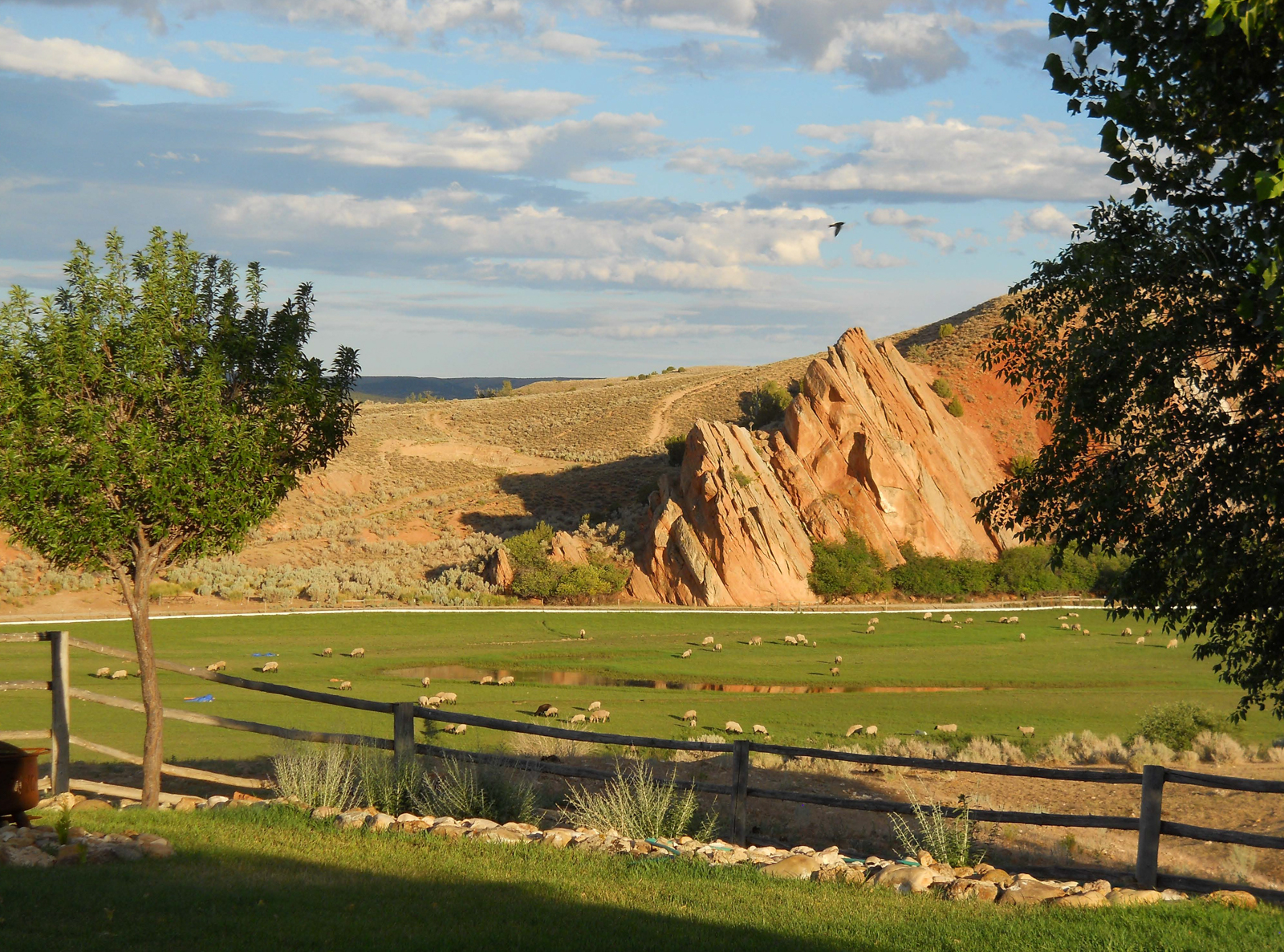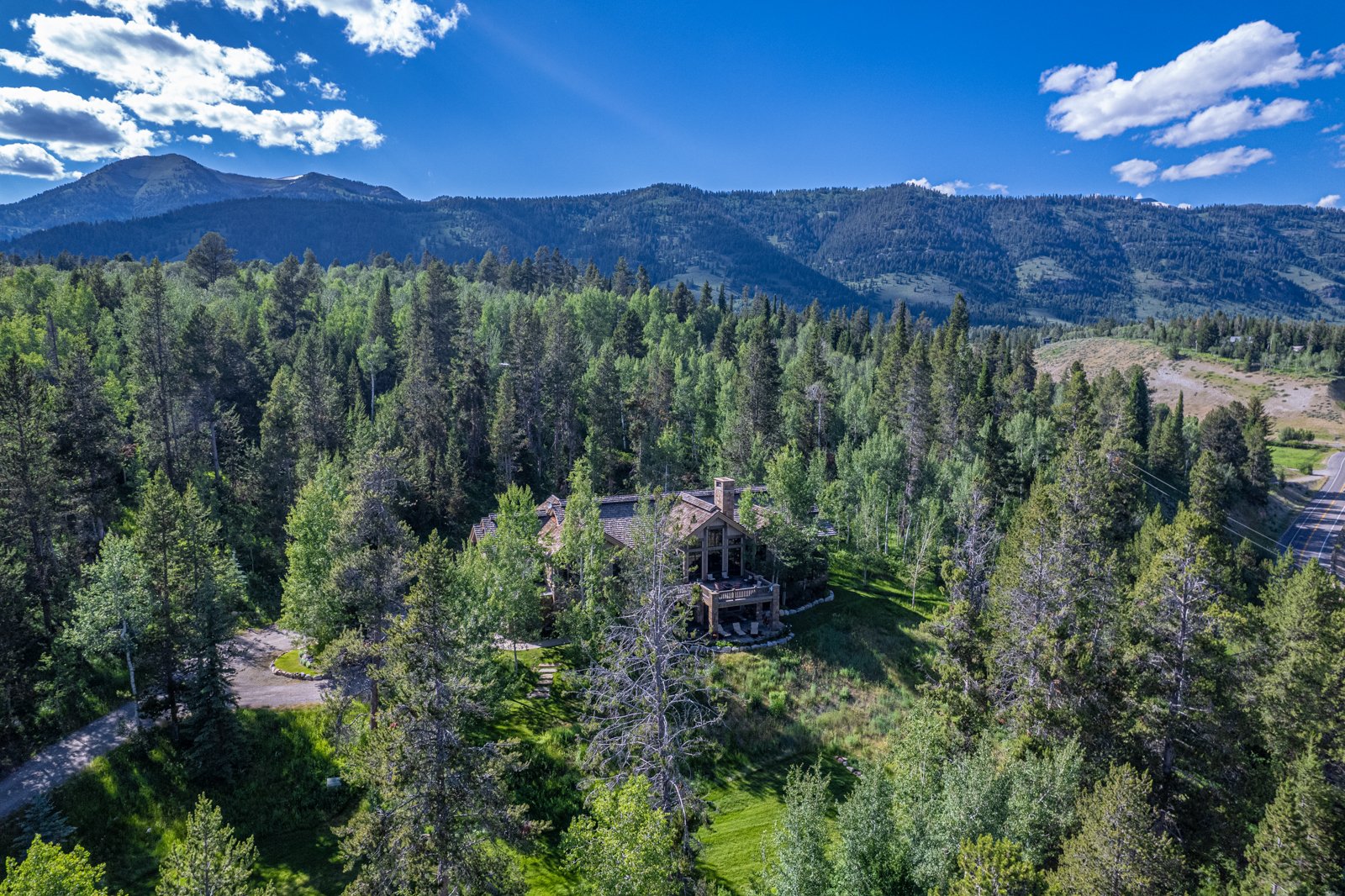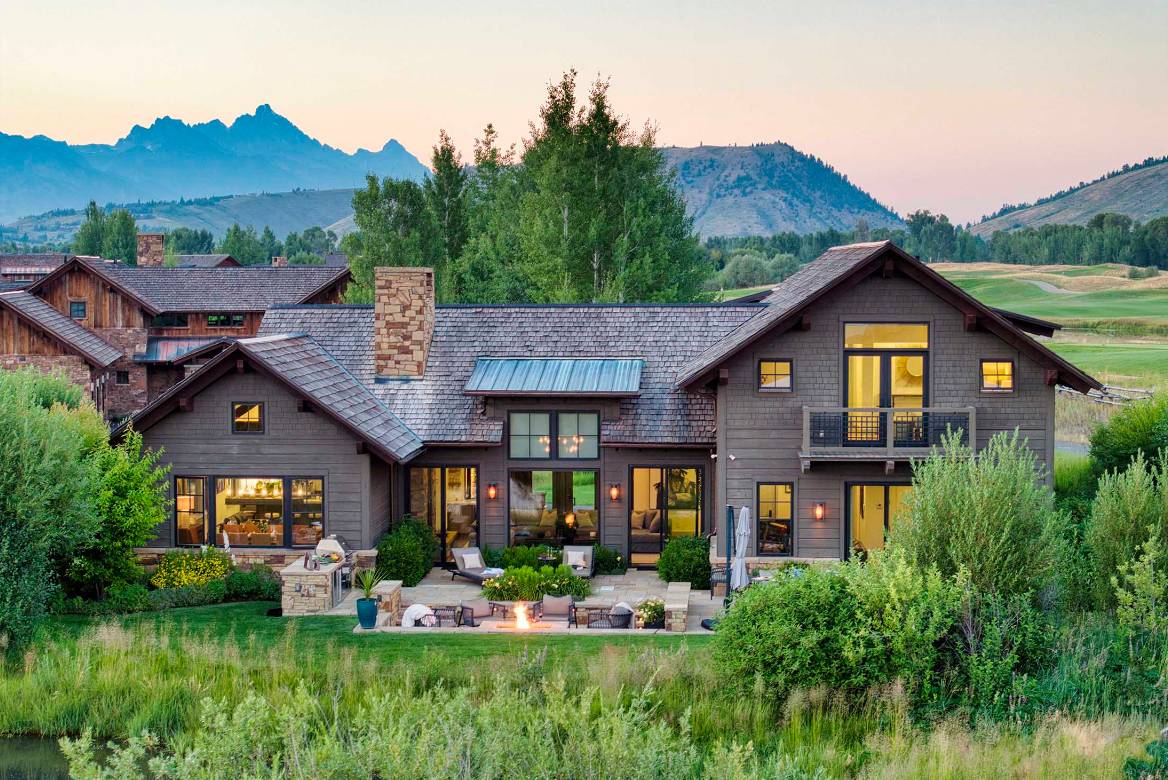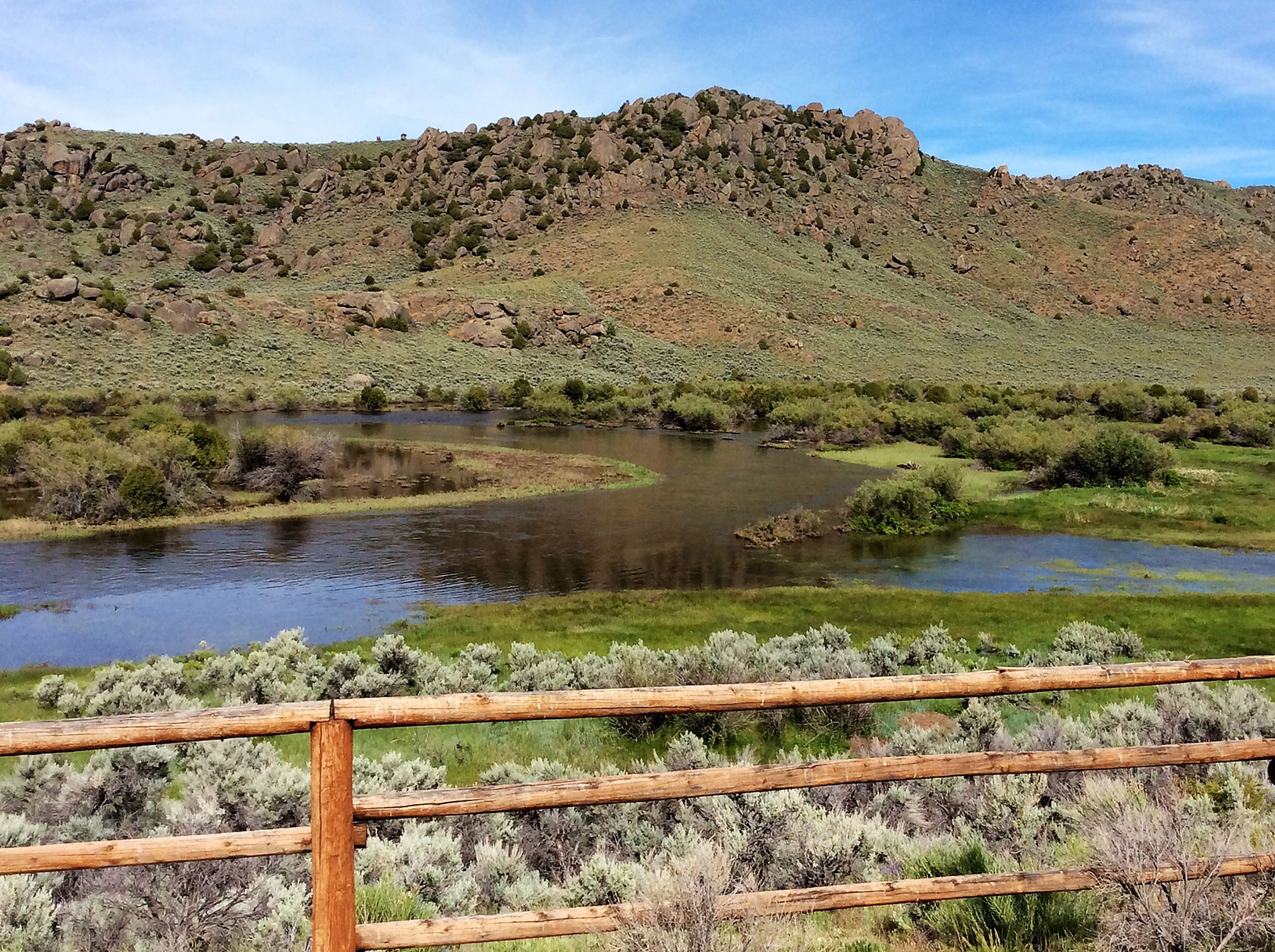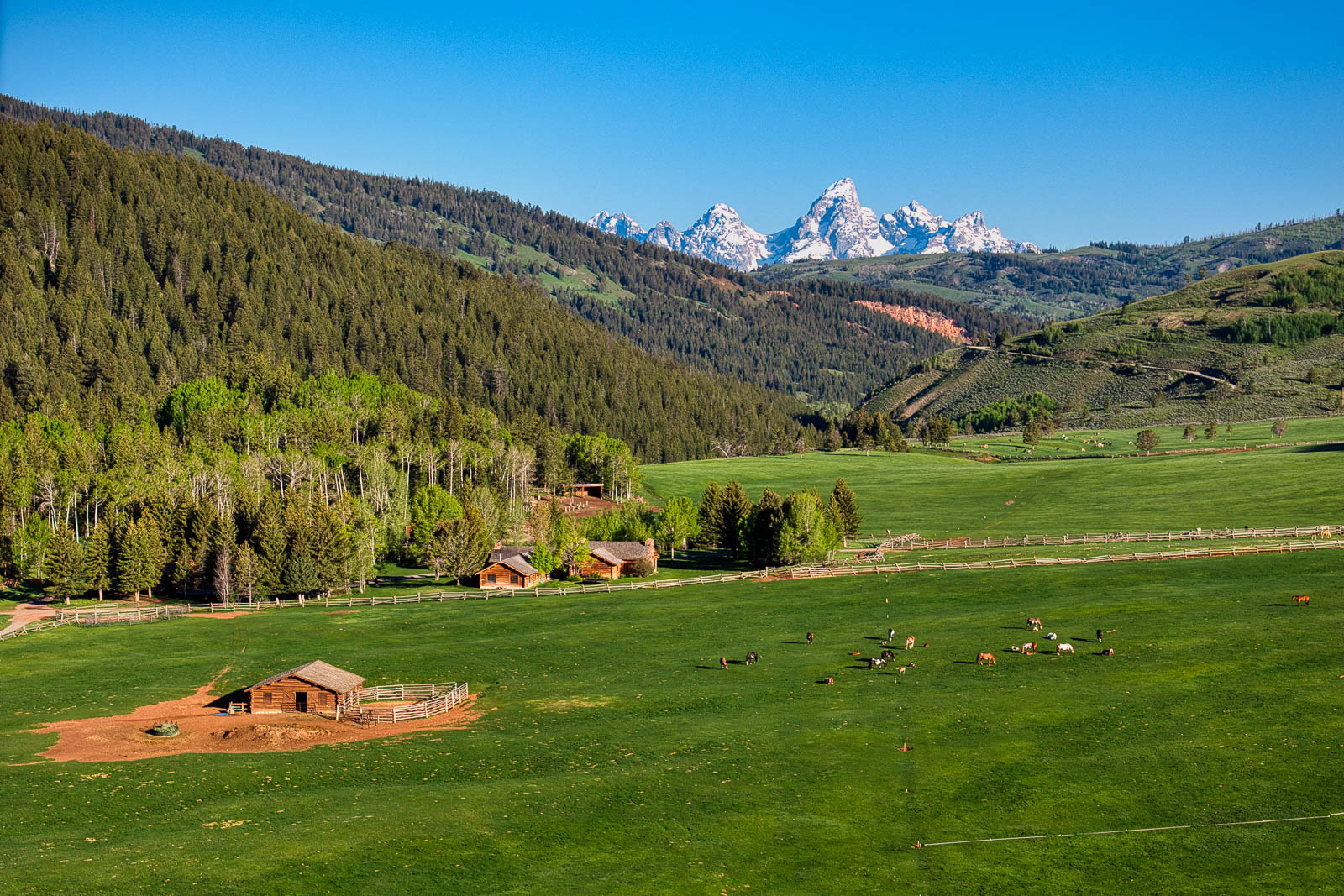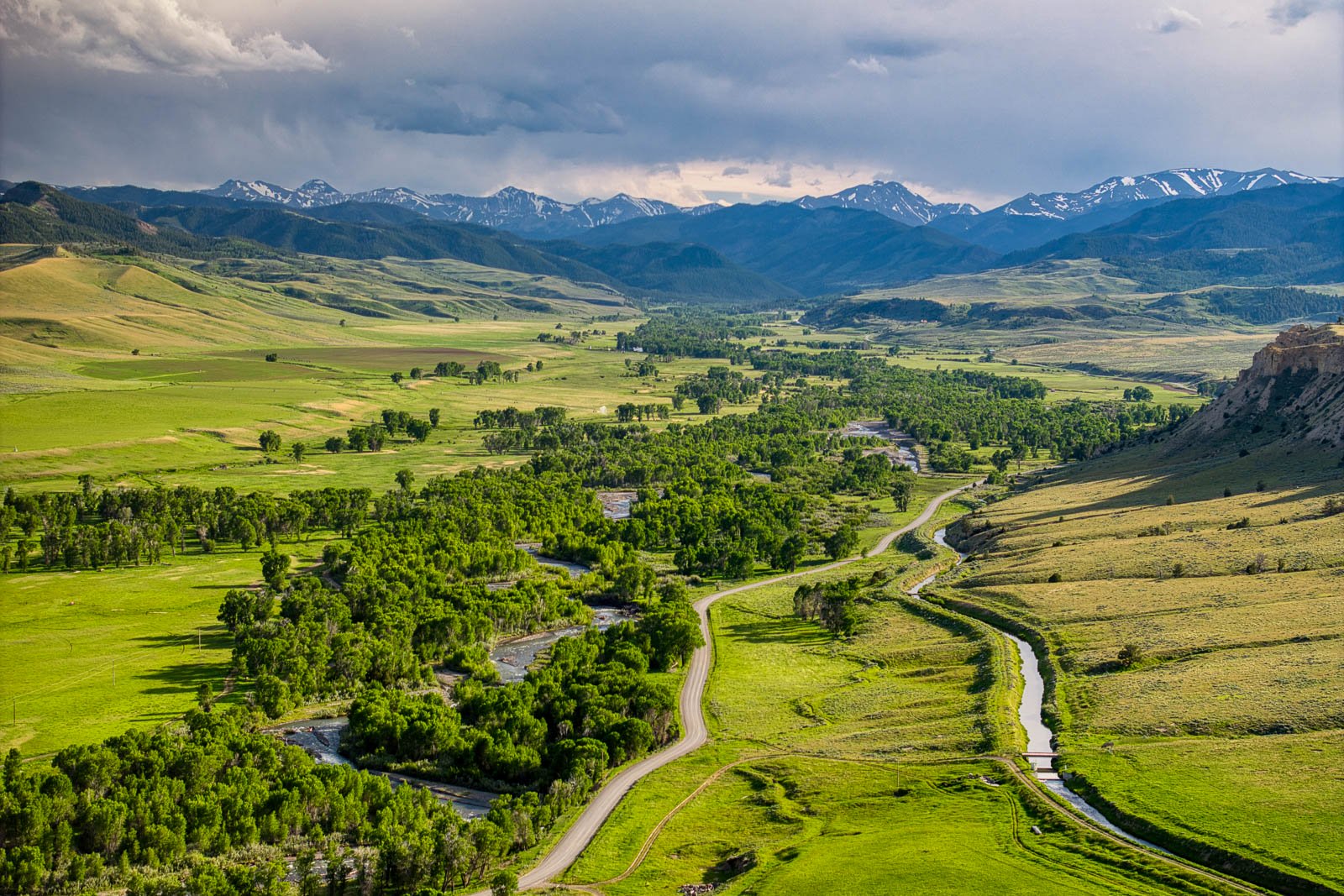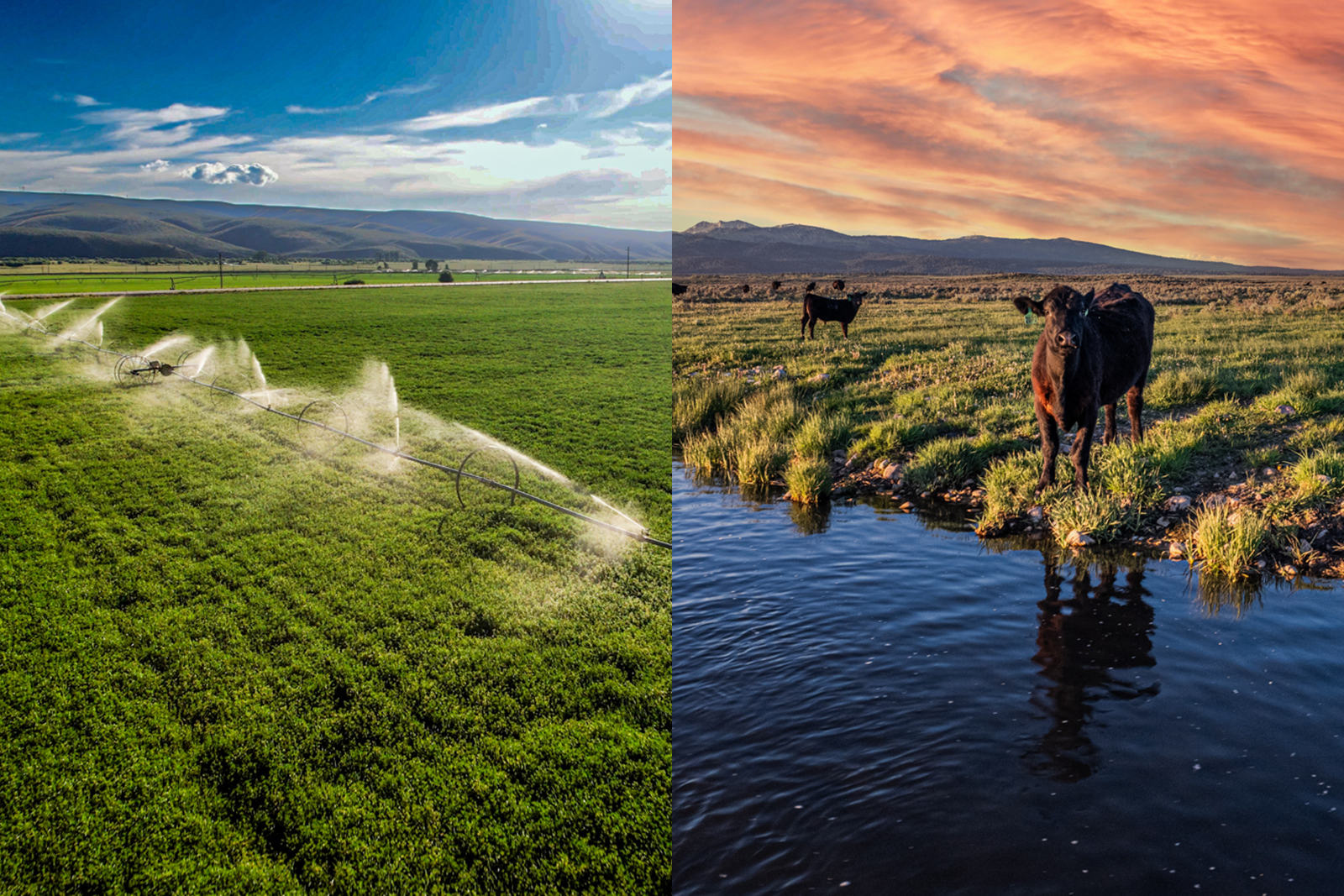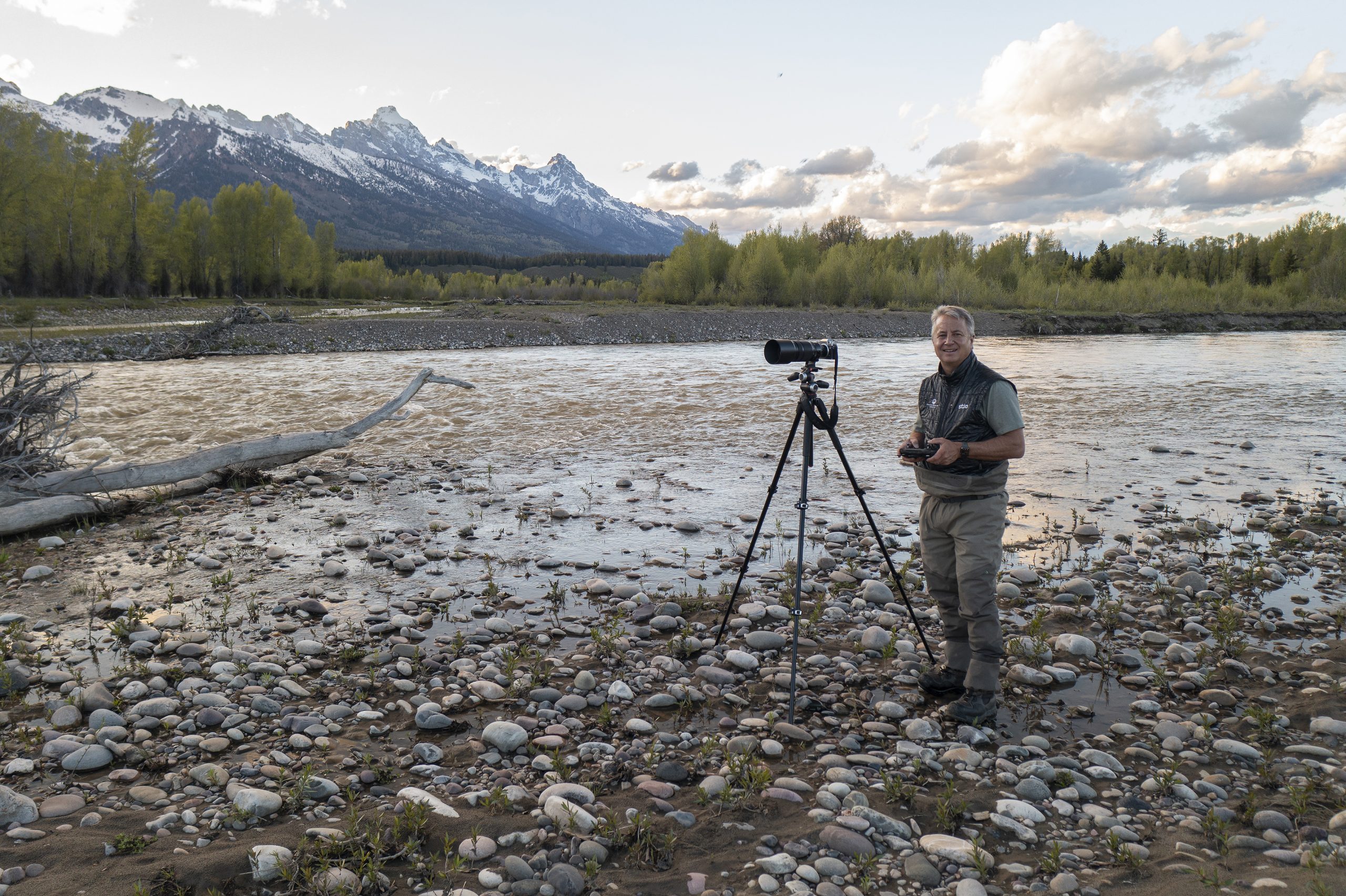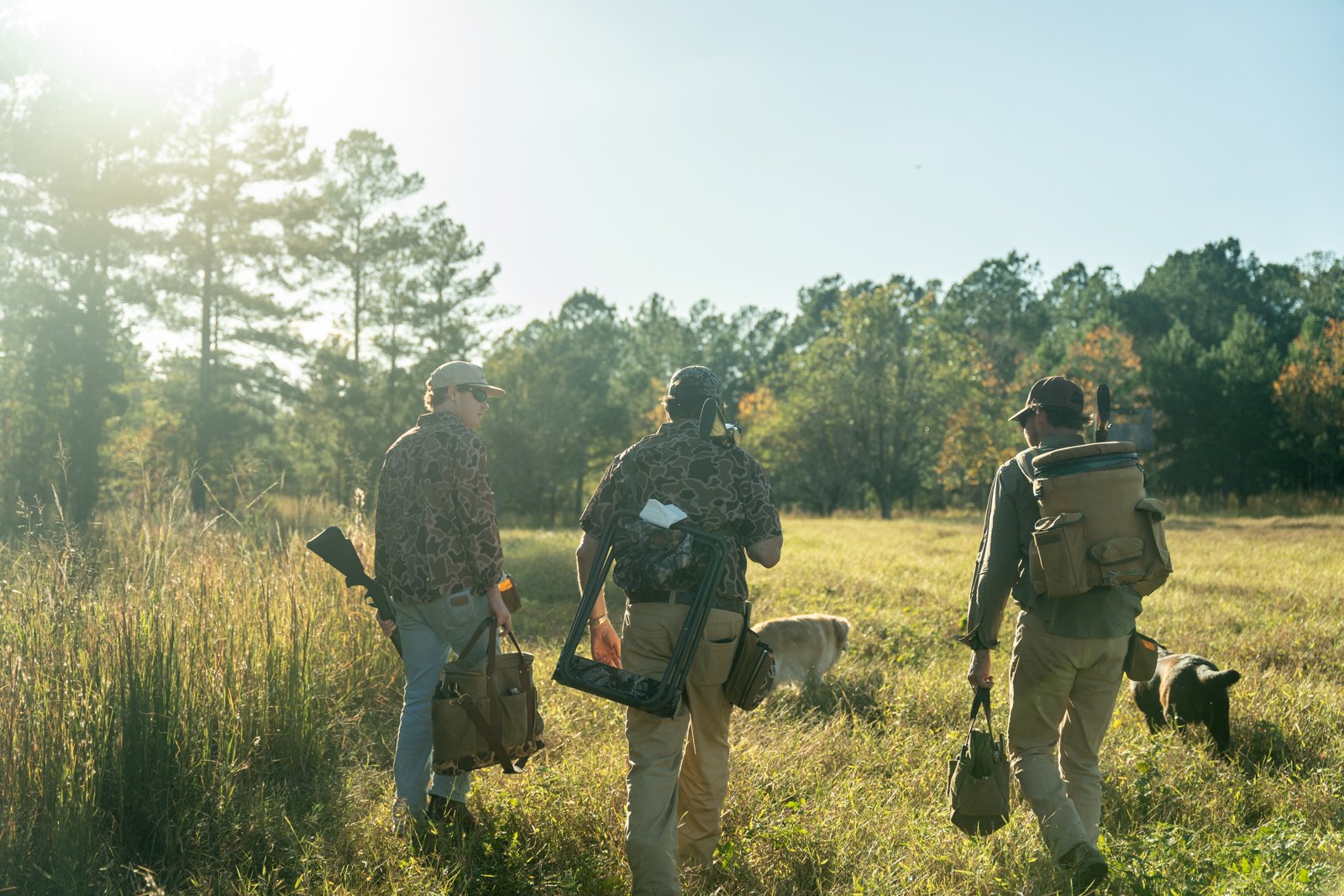Granite Ranch
Details & Features
Only 26 miles from downtown Jackson, Granite Ranch feels light years away. Or maybe it feels like a leap back to simpler times. On Granite Creek, in the Gros Ventre Mountains and downstream from a waterfall that parts of the 1992 fly-fishing movie A River Runs Through It were filmed, the Ranch is a rare in-holding—private property surrounded by public land—in the Bridger-Teton National Forest. Here you can hike, read in front of a fire, fly-fish, see the Milky Way, hunt, sip a cocktail on the porch, and ride horses. A conditional use permit from Teton County allows the Ranch to be operated as a seasonal guest ranch—likely the most unique in Jackson Hole. It has 30,000+ square feet of space between 23 structures dating from the 1930s to 2018 and can sleep 100 people.
Wilderness to Call Your Own
Granite Ranch is one of only seven private properties—in-holdings—in Granite Creek in the southern Gros Ventre Mountains, which are part of the 3.4 million acre Bridger-Teton National Forest. These seven properties range in size from 2 to 86 acres.
While only 26 miles from downtown Jackson, between road-side wildlife sightings and eight miles of dirt road, plan on the drive from there to Granite Ranch being one hour. Between November 1 and early May, the eight miles of dirt—the final stretch to the Ranch—are unplowed and can only be traveled via over-snow vehicles. A snowmobile would be easiest; cross-country skis or a fat bike would make it a workout; dog-sled—there’s an outfitter, a former Iditarod racer, who lives and has his kennels at the mouth of Granite Canyon, about where the road stops being plowed—would make for the best story to share with friends.
As an in-holding in the BTNF, Granite Ranch is in the middle of some of the wildest land in the Lower 48 States; the BTNF is home to Wyoming’s tallest mountain (13,804-foot-tall Gannett Peak), more than 1,000 miles of trails for hiking and horseback riding, seven of the ten largest glaciers in the Lower 48 states outside of Washington state, more than 400 species of mammals and birds, the headwaters of the Green River (the chief tributary to the mighty Colorado River), and three designated wilderness areas. It is one of these wilderness areas, the 285,619-acre Gros Ventre Wilderness, that surrounds Granite Ranch. A designated wilderness area receives the government’s highest level of land protection. Camping, fishing, hunting, and hiking are allowed in wilderness areas; not allowed are mining, logging, the construction of roads or buildings, and motorized and mechanized vehicles (bicycles are mechanized and so not allowed). From the landmark 1964 Wilderness Act:
“A wilderness, in contrast with those areas where man and his own works dominate the landscape, is hereby recognized as an area where the earth and its community of life are untrammeled by man, where man himself is a visitor who does not remain.”
Granite Ranch is a rare opportunity to live with modern comforts in the middle of a landscape promised to forever be “untrammeled.”
“Outclassed by the visually more impressive Tetons, some 287 million years their junior, the rounded peaks, immensely gently sloping canyons, steep draws and gullies, and thick forest of the Gros Ventres convey a sense of age, a primeval quality.”—Jackson Hole Guide, August 7, 1980
A Human Paradise for More than 10,000 Years
Archeological evidence reveals that people have hunted and seasonally lived in this area for at least 10,000 years, which isn’t surprising given that today it is one of the premiere hunting areas in the state. Wickiups and vision sites have been found in the Gros Ventre Wilderness surrounding Granite Ranch. In 1919, the ranch was homesteaded; while this was the hey-day of dude ranches in Jackson Hole, Dr. William H. McKahan took a different path here and raised cattle and pine martens.
In 1938, the ranch got its second steward, Slim Bassett, an avid angler who undoubtedly knew all of the best fishing holes in the many creeks on and around the ranch and who, with his wife Mabel, did run it as a dude ranch and hunting camp. Most of its staff and guests returned year after year. In 1960, Dr. Donald “Doc” MacLeod, Jackson Hole’s second physician and a good friend of Slim and Mabel’s, became the ranch’s third owner. Ambitious hikers can start at Granite Ranch and, about seven very scenic miles and 4,000 vertical feet later, reach MacLeod Lake, named for beloved Doc, who, during his years in the valley delivered more than 2,500 babies, drove a horse-drawn sleigh to rescue patients and, occasionally pinch-hit as the valley’s only veterinarian.
Doc, his daughter Janet, and her husband Larry Moore continued Slim’s outfitting operation until Larry’s death in 1976. In 1982, 33.6 acres of the original 160-acre homestead were sold to Safari Club International. It is this acreage that is today Granite Ranch. Janet Moore is still in the area, on another part of the homestead. While her horseback riding days are behind her, Janet still enjoys watching the wildlife that wanders through, and reminisces about rides of years past, including riding to Jackson for ice cream. “It is a great place to ride,” she says. “You can start at the ranch and go almost anywhere—Turquoise Lake, Crystal Creek, Shoal Falls, or even to Cache Creek and into Jackson!”
Ready to go as a Guest Ranch
Although Granite Ranch hasn’t operated as a guest ranch since 1977, all it needs to be one again is staff. Included in this sale is a grandfathered commercial use permit, a type of permit that is impossible to get today. The permit allows Granite Ranch to operate as a seasonal commercial guest ranch hosting 100 guests at a time. But this permit would be useless without the infrastructure to support it. While Granite Ranch has not been a guest ranch for more four decades, since 1980 it has been home to the American Wilderness Leadership School. Run by Safari Club International, this school brought students and educators—more than 3,000 high school students and more than 8,000 teachers—from across the country to live on, learn from, and experience the property. Read more about the Ranch’s existing buildings and amenities on the next page.
Improvements
Granite Ranch includes 23 structures:
Parts of the 14,080-sf Main Lodge date to the 1930s, but it was mostly constructed in the 1970s and 1980s. A new roof cover was completed in 1995. This building includes a kitchen, dining room, classroom, library, two communal bathroom/shower areas, and 16 sleeping rooms. Together, as currently configured, these sleep up to 39 guests.
In 2018 two identical two-story duplex cabins were built; each has four individual suites, including one ADA compliant suite and sleeps up to 16 guests.
Six cabins were built between 1930 and 1995. Four of these six are identical. The fifth is the only guest cabin with a kitchen. The oldest of the six cabins is the laundry cabin.
A 1,552-sf caretaker’s duplex was built in 2014. It includes two separate 776-sf apartments, each of which has a full kitchen and a loft area, and a full basement and can sleep four guests. The basement is only partially finished and Granite Ranch’s current owners use it for storage.
A 6,160-sf steel frame shop was built on the ranch in 2003. Approximately 2,640-sf of it is insulated; the remaining area is configured as open storage.
There is also an indoor pellet shooting range and, outside, an area designated for skeet shooting and a rifle range.
All structures have been well maintained.
Meet the Neighbors
The BTNF is 3.4 million acres and connects to Grand Teton National Park, the National Elk Refuge, and Yellowstone National Park. Granite Ranch sits in the heart of the 15-million-acre Greater Yellowstone Ecosystem, one of the last intact temperate ecosystems in the world. “Intact” means that all of the wildlife that lived in the area prior to the arrival of Europeans still live here. While moose are frequently spotted, people who know the ranch say the 100+ hummingbirds that can be seen on any given summer day are more fun to watch. Jay Buchner, who taught at the SCI’s American Wilderness Leadership School for years, remembers standing on the north porch of the main lodge watching a moose. “And then a whole pack of hummingbirds was scurrying around me. It was pretty amazing,” he says. Buchner also recalls a doe deer who liked to rest in the shade beneath the north porch during the heat of a summer day. “I’d walk out on the deck and she’d pop out and disappear in three big jumps,” he says. “But the hummers—I’ve never seen so many in one area before.” There are also osprey, sandhill cranes, elk, beavers, and black and grizzly bears.
Outfitter Partnership
Janet and Larry Moore sold their permit to operate as hunting outfitters in the BTNF around Granite Creek decades ago. Today that permit belongs to Trophy Mountain Outfitters, which Wyoming native Dustin Child runs with his wife Laura and their sons Haze and Jamin. Child first hunted around Granite Creek in 1999. “At the end of that day I told the outfitter that if I could pick any hunting camp in the state of Wyoming, I’d pick the one in Granite,” Child says. He told the outfitter that if they ever wanted to sell to let him know. “When it came available, I jumped on it,” Child says. Today Trophy Mountain Outfitters’ multi-day fly-fishing trips and trophy hunts for deer, elk, bighorn sheep, antelope, moose, mountain lions, and black bears are booked solid. While it is a wholly separate business and entity from Granite Ranch and maintains a seasonal tent camp for hunters up Granite Canyon, Child says that there is potential for him to partner with the ranch and have clients stay and eat there. “If our clients could be guests at Granite Ranch and be provided with lodging and meals, that’d be pretty great,” he says. “I would be interested in talking to new owners about what their vision and goals for the ranch are.
Wyoming
Ranches for Sale in Wyoming The Equality State has been rooted in ranching since becoming a state in 1890. So much has changed since then, but when a ranch experience happens for the first time, it seems that little time has passed since the turn of the 19th century. From Cheyenne to Pinedale; Wyoming offers a plethora of income-producing cattle ranches for sale and farms for someone looking for an investment property. Many of these ranches for sale in Wyoming include BLM leases, United States Forest Service agreements for cattle grazing and lease agreements with neighboring ranchers or farmers. Harvesting upland birds and big game animals are another large...
View All Wyoming PropertiesRelated Properties
Landowner Insights
America's First Industry: The Past, Present, and Future of Agriculture
History of American Farming and Agriculture: Past, Present, and Future As early as 11,000 BCE, humans cultivated crops and tended animals for sustenance. The history...
Iconic Sales Propel Latham Jenkins to Live Water Properties’ 2024 Top Producing Broker Honor
Latham Jenkins JACKSON HOLE, WYO – For 2024 and for the third time in his eight-year real estate career, Jackson Hole...
Key Trends Shaping the Ranch Market: 2024 Insights & 2025 Forecasts
COO/Partner/Responsible Broker John Merritt Ranch real estate market trends have shifted in 2024, offering valuable insights into pricing, inventory, and buyer...


